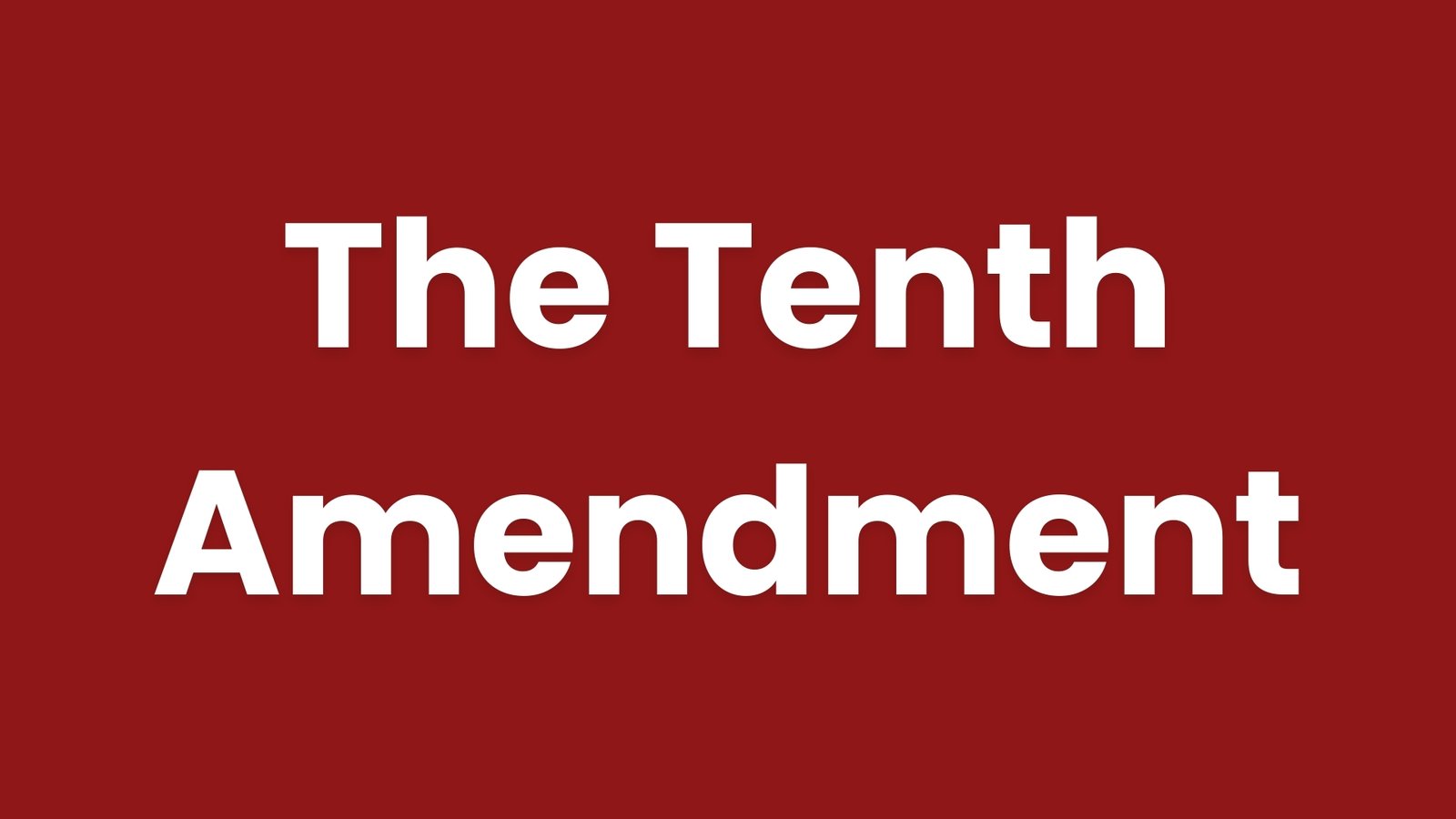On this page you will read detailed information about The Tenth Amendment.
The Tenth Amendment of the United States Constitution is a pivotal provision that ensures the distribution of power between the federal government and the individual states. It states that “the powers not delegated to the United States by the Constitution, nor prohibited by it to the States, are reserved to the States respectively, or to the people.” This amendment serves as a cornerstone of American federalism, granting states the authority to exercise their reserved powers. In this article, we will explore the significance of the Tenth Amendment, the concept of reserved powers, and its impact on the relationship between the federal government and the states.
Understanding the Tenth Amendment
The Tenth Amendment is a concise yet impactful provision within the Bill of Rights. It affirms the principle of federalism, which divides power between the national government and the states. The framers of the Constitution recognized the need for a balance of power, ensuring that neither the federal government nor the states would become too dominant.
Defining Reserved Powers
Reserved powers are those powers that are not explicitly granted to the federal government but are instead reserved for the states or the people. These powers are derived from the notion that states possess inherent sovereignty and have the right to govern themselves within their respective spheres.
The Tenth Amendment serves as a safeguard against potential federal overreach, ensuring that states have the freedom to enact laws and policies that reflect the interests and needs of their citizens. By reserving certain powers to the states, the Tenth Amendment helps maintain a delicate equilibrium in the federal system.
Balancing Federal and State Powers
The Tenth Amendment plays a crucial role in maintaining the balance of power between the federal government and the states. It limits the authority of the federal government by reserving certain powers exclusively to the states. This division of power prevents the federal government from encroaching upon areas that are better left to state control.
The relationship between federal and state powers can be complex and has evolved over time. The Supreme Court has played a significant role in interpreting the Tenth Amendment and resolving conflicts between the federal government and the states. Through landmark cases, such as United States v. Lopez and Printz v. United States, the Court has clarified the boundaries of federal power and affirmed the importance of state sovereignty.
In the previous post, we had shared information about The Civil Rights Act of 1964: A Landmark Legislation for Equality, so read that post also.
Examples of Reserved Powers
The reserved powers granted to the states under the Tenth Amendment are diverse and encompass a wide range of areas. Let’s explore some examples of these powers:
Police Powers
One of the most significant reserved powers is the states’ authority to exercise police powers. Police powers allow states to regulate public safety, health, and welfare within their borders. This includes the ability to enact laws related to law enforcement, public health initiatives, and criminal justice.
Education
The responsibility for education is primarily delegated to the states, highlighting their reserved powers. Each state has the authority to establish and regulate its own educational system, including curriculum standards, teacher certification, and funding mechanisms. This autonomy allows states to tailor their educational policies to meet the unique needs of their students and communities.
Intrastate Commerce
While the federal government has the power to regulate interstate commerce, the states have the authority to regulate commerce within their borders. This reserved power enables states to enact laws pertaining to local trade, business regulations, and consumer protection.
Family Law
Family law matters, such as marriage, divorce, and child custody, are primarily governed by state laws. The Tenth Amendment grants states the power to establish their own family law provisions, allowing them to reflect the values and preferences of their citizens.
Land Use and Zoning
States have the authority to regulate land use and zoning within their boundaries. This includes determining how land is developed, designating areas for residential, commercial, or industrial use, and implementing environmental regulations.
The Impact of the Tenth Amendment
The Tenth Amendment has had a profound impact on the relationship between the federal government and the states. It ensures that states have the autonomy to govern their own affairs, promoting diversity and experimentation in policy-making. This decentralized approach allows states to serve as laboratories of democracy, testing different approaches to address societal challenges.
The Tenth Amendment has also been a source of contention and debate throughout American history. Disputes have arisen over the extent of federal power and the limits imposed by the Tenth Amendment. These debates continue to shape our understanding of federalism and the balance between national and state authority.
Conclusion
The Tenth Amendment of the United States Constitution serves as a critical safeguard for state sovereignty and the division of power between the federal government and the states. It grants states the authority to exercise reserved powers, ensuring that they have the freedom to govern themselves within their respective spheres. The Tenth Amendment’s impact on American federalism is far-reaching, shaping the relationship between the federal government and the states and promoting a balance of power that is fundamental to the American system of governance.
Disclaimer
The information and services on this website are not intended to and shall not be used as legal advice. You should consult a Legal Professional for any legal or solicited advice. While we have good faith and our own independent research to every information listed on the website and do our best to ensure that the data provided is accurate. However, we do not guarantee the information provided is accurate and make no representation or warranty of any kind, express or implied, regarding the accuracy, adequacy, validity, reliability, availability, or completeness of any information on the Site. UNDER NO CIRCUMSTANCES SHALL WE HAVE ANY LIABILITY TO YOU FOR ANY LOSS OR DAMAGE OF ANY KIND INCURRED AS A RESULT OR RELIANCE ON ANY INFORMATION PROVIDED ON THE SITE. YOUR USE OF THE SITE AND YOUR RELIANCE ON ANY INFORMATION ON THE SITE IS SOLELY AT YOUR OWN RISK. Comments on this website are the sole responsibility of their writers so the accuracy, completeness, veracity, honesty, factuality and politeness of comments are not guaranteed.
So friends, today we talked about The Tenth Amendment, hope you liked our post.
If you liked the information about The Tenth Amendment, then definitely share this article with your friends.








